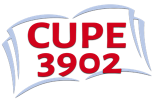May 2, 2024
Background
This morning members of the U of T community, led by students and faculty, erected the People’s Circle for Palestine in King’s College Circle. Since the onset of Israel’s genocide in Gaza seven months ago, students have renewed their call for the U of T to take concrete steps to end its complicity in the occupation of Palestine.
Last month, the student led U of T Occupy for Palestine collective staged a two-day sit-in of Simcoe Hall, demanding that the U of T administration: (1) divest from Israel; (2) end partnerships with Israeli academic institutions that support the occupation; and (3) ensure ongoing financial transparency around its endowments, short-term working capital assets, and other financial holdings. In a response from President Gertler, the administration declined to meet any of those demands.
In line with CUPE 3902’s longstanding BDS mandate, the Local issued a solidarity statement with the occupiers of Simcoe Hall. Today, we issue a statement in solidarity with the escalation. This action comes after years of student, contract-educator, worker, and faculty efforts to get the university administration to divest its endowment away from companies that provide armaments and military services to the state of Israel.
Faced with a university administration that refuses to recognize the legitimacy and urgency of U of T Occupy for Palestine’s demands, we wholeheartedly commit to standing with students, faculty and workers until our university ends its complicity with the genocide in Gaza, and the occupation of Palestine more broadly.
Response to U of T’s attempt to censure protest and discourse.
The rights to freedom of speech and freedom of association are enshrined in University of Toronto policies—rights which the university administration selectively implements, as visible in their recent letter to the university community at large.
Under such policies, students and university community members are within their rights to gather, as an encampment or otherwise, on university grounds.
Through misrepresentation of its policies, the university administration is positioning itself to determine which protests are “authorized” leading to a chilling effect on community members’ freedom of speech.
We rebuke such authority and firmly believe that the university administration is not in a position to define what constitutes freedom of speech and freedom of assembly.
A protest belongs to protesters; a picket line belongs to picketers. If the administration has an issue with a protest, it is the courts, not Sandy Welsh or any university administrator for that matter, who will decide if it is lawful. Moreover, should a court be called on to answer this question, the basis for its ruling will be constitutional principles and the body of common law precedent, not ad hoc policies drafted in Simcoe Hall.
Despite the policies that affirm the essential role of freedom of speech at the university, Professor Sandy Welsh (Vice-Provost, Students) sent a statement to all students on April 28, 2024, that cautioned against the use of campus grounds for the purposes of protest. While the letter notes that students have the freedom to “to engage in peaceful assemblies and demonstrations,” it further goes on to say that:
Unauthorized activities such as encampments or the occupation of University buildings are considered trespassing. Specifically, our Code of Student Conduct prohibits intentional damage to University property, unauthorized entry and use of University property contrary to instructions, disruptions of University activities, and other offenses to property and persons.
We condemn the implicit assumptions contained in the letter: that what is explicitly intended to be a peaceful protest will pose a “safety risk” or cause harm to the university’s property. The ongoing protests can be expected to include a wide representation of students including Black, Indigenous, Arab, Jewish, Muslim, and 2SLGBTQ+ individuals. The implication that the expression of their right to assemble will lead to “intentional damage” is insulting and perpetuates harmful, racist assumptions about BIPOC-led political action as being inherently violent and destructive.
Further, the university administration continues to signal that they intend to react to a peaceful assembly with measures to disrupt those protesting and enforce the university’s private ownership of land in and around campus. Those assembled received a statement earlier today with patronizing “instructions” outlining what constitutes a compliant protest, noting that protesting is not permitted after 10 p.m. and flagging that protesters may be required to show photo ID. We condemn such measures that serve to discourage and surveil those assembled and call on the university administration to reconsider their proposed course of action. With the presence of community members who face disproportionate violence and carding from law enforcement, the use of such measures makes for a situation where those assembled would be subject to harm in their efforts to exercise their rights to freedom of speech and freedom of assembly.
We insist that the University does not escalate violence by involving police in their response to a peaceful protest.
As we have seen at other campuses across North America, university administrators have been quick to call their own campus police forces, private security, or state police forces to intimidate, harm, and arrest members of their own community. These decisions by university administrators have neither shaken the community’s solidarity nor altered the goals of such protests. Rather, they have brought the university under microscopic scrutiny of news agencies, alumni, and donors for their disregard for peaceful assemblies and demonstrations.
We urge the University of Toronto administration against involving the police, and to respect in practice the principle that academic freedom, freedom of expression and freedom of assembly are fundamental elements of a free and democratic society. This is always true, but especially so in this moment, in the context of an ongoing genocide.
We further ask that the University of Toronto administration adhere to its Institutional Purpose where it commits to “the rights of freedom of speech, academic freedom, and freedom of research” and asserts that “these rights are meaningless unless they entail the right to raise deeply disturbing questions and provocative challenges to the cherished beliefs of society at large and of the university itself.”
By appealing to the status quo and the use of police forces, the University of Toronto administrators will have failed its purpose of “fostering an academic community in which the learning and scholarship of every member may flourish.”
We look forward to the university administrators’ timely response with respect to these demands.
In solidarity,
CUPE 3902 Executive Committee

